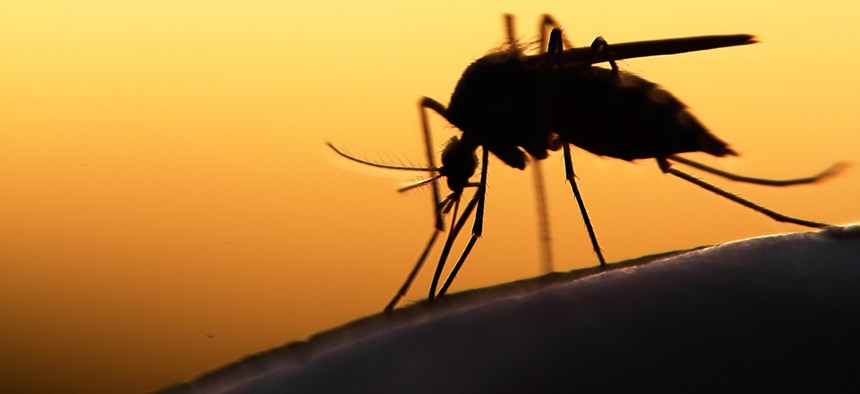This Solar-Powered Box Uses Human Odor to Lure and Kill Mosquitos

mycteria/Shutterstock.com
An estimated 3.2 billion, almost half of the world’s population, are at risk of contracting Malaria.
An estimated 3.2 billion, almost half of the world’s population, are at risk of contracting Malaria. The disease is particularly deadly in Africa. Of the 1 million people that die of Malaria each year, over 90 percent of them are from Africa. The disease costs the continent $12 billion and an estimated 1.3 percent growth per year and accounts for 40 percent of health budgets,according to ONE.
While mosquito nets and insecticide spraying in homes have helped in combating the disease, the challenge is what happens when people are outdoors. In rural areas, especially, where its not unusual for communities to cook or socialize outside, these tools have proven to be limited deterrents.
That’s where the Malaria Landing Box (MLB) comes in, a new tool conceived and developed by researchers at the Ifakara Health Institute in southern Tanzania to tackle, specifically, this particular issue. According to a recent paper published in Malaria Journal, MLB uses solar-powered fans to spread synthetic human smells and carbon dioxide to trick malaria transmitting mosquitoes into believing that they are in the midst of live humans.
Once lured into the boxes, MLB traps and kills them using either deadly fungi or insecticide. The tool can also electrocute trapped mosquitoes, if solar powered or connected to a battery. The researchers found that the MLB boxes that used insecticide were more effective than the one imbued with the fungi boasting a 63 percent and 43 percent killing rate respectively.
At a cost of between $100-150, the synthetic smell lasts for about a month. One of the lead researchers on the project Arnold Mmbando told SciDev.net they are “looking for funding and partners to scale up production and sell it to other countries.”
Over the past decade and a half, significant progress has been made in tackling Malaria’s deadly effects. According to the World Health Organization (WHO), global infections of the disease have fallen by 37% with mortality down 60 percent since 2000. While curable, efforts to produce a vaccine have yet to be successful, making preventive innovations like the MLB all the more important.
(Image via mycteria/Shutterstock.com)





